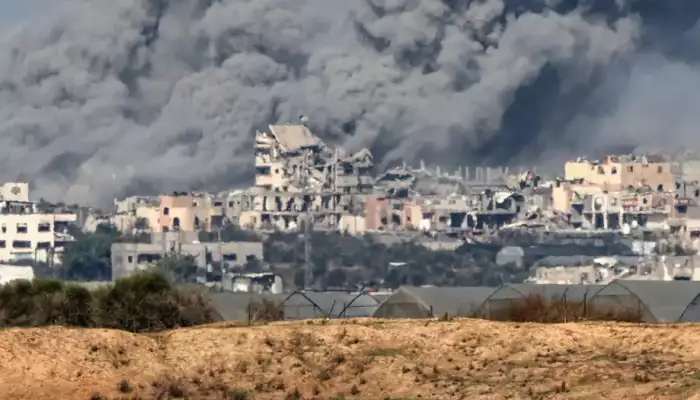
UN Secretary-General Antonio Guterres has written a direct appeal on the situation in Gaza to the UN Security Council, a rare step invoking a little-used article of the UN Charter.
"We are facing a severe risk of collapse of the humanitarian system. The situation is fast deteriorating into a catastrophe with potentially irreversible implications for Palestinians as a whole and for peace and security in the region," Guterres wrote in a letter to the 15-member Council.
"Such an outcome must be avoided at all costs," he said.
Guterres invoked, for the first time since he took office in 2017, Article 99 of the UN Charter. This states that "the Secretary-General may bring to the attention of the Security Council any matter which in his opinion may threaten the maintenance of international peace and security."
He focused in particular on the difficulties in delivering aid and providing health care to people in the enclave.
"The current conditions are making it impossible for meaningful humanitarian operations to be conducted," the letter said, adding that "nowhere is safe in Gaza."
He pushed for the establishment of a humanitarian cease-fire.
"With a humanitarian cease-fire, the means of survival can be restored, and humanitarian assistance can be delivered in a safe and timely manner across the Gaza Strip," Guterres wrote.
G7 leaders call for further 'humanitarian pauses' in fighting
The leaders of the Group of Seven nations on Wednesday discussed the conflict in a video session and issued an appeal for "urgent action" to mitigate the deteriorating situation for civilians in the Gaza Strip.
"More urgent action is needed to address the deteriorating humanitarian crisis in Gaza and minimize civilian casualties," the G7 leaders said in a joint statement. "We support and encourage further humanitarian pauses to enable this."
They also called on Iran to refrain from supporting either Hezbollah in Lebanon or Houthi militants in the region, possibly leading to the conflict's spread. In general, they said that "regional actors must cease de-stabilizing activities."
The G7 leaders also said that while they welcomed "the recent pause" in the conflict that ended last week, "We deeply regret that Hamas refused to release all of the female hostages and military operations have resumed."
Fighting largely stopped for seven days, punctuated by daily exchanges of hostages held by Hamas for Palestinian prisoners in Israel before the truce broke on November 30.
Sisters of German citizen still being held hostage recount ordeal
DW's Phil Gayle spoke to two sisters — Ofir and Naama Weinberg — whose cousin Itai Svirsky was taken hostage by the Hamas group on October 7.
The siblings are in Germany to meet Chancellor Olaf Scholz and highlight the plight of their cousin.
Ofir described how her family witnessed the events of October 7 via a WhatsApp family group and how Itai relayed what was happening with bombs and shooting in the street.
Nothing had been heard from Itai, but that changed after the recent release of some hostages.
"Just a few days ago we got a sign of life from Itai, for the first time after more than fifty days," Naama said. "We got it from one of the hostages that were released and was held with him the whole time and it was that he's alive."
Naama described this as "a big release" for the family because, up until that point, they did not know whether or not he was still alive.
"He is suffering from deep anxiety. He witnessed his mother being murdered before he was taken away," Naama explained.
The sisters said this would be their second meeting with Chancellor Scholz.
"Our expectation from Germany is to treat and handle this case as German citizens that were taken hostage, and to treat it in the same way they would have treated it if it had happened on Germany's land," Naama said.
Hamas is classified as a terrorist organization by the European Union and the United States.